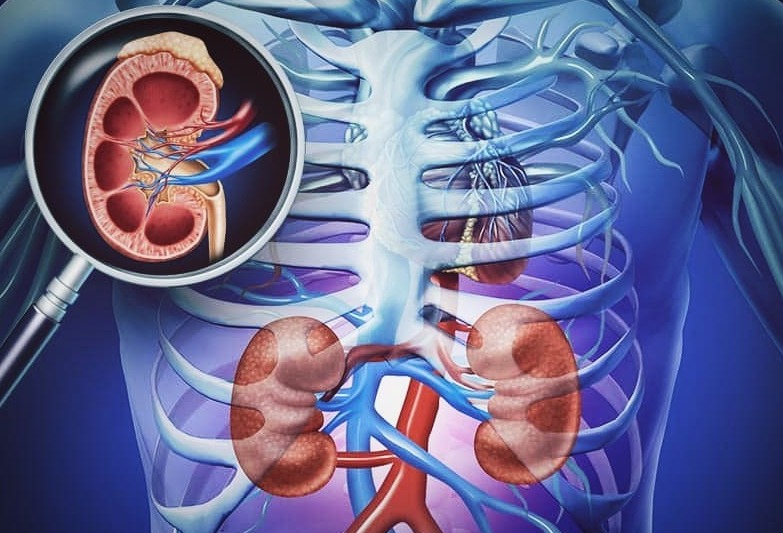Contents
How does Diabetes affect Kidney Function?
One out of every ten diabetic patients suffers from kidney problems. Kidneys are relatively more prone to damage when a person has diabetes. For all diabetics, it is really important to understand the effect of diabetes on kidney function. It is hard to imagine a day when the kidneys do not function as they should. It is even worse in the life of a diabetic. Let us start by understanding how the kidney works?
How do kidneys work?
On a hot summer day, when we drink a lot of water to keep ourselves hydrated, we feel the urge to go to the washroom, again and again. It is our kidneys that regulate the process. They are responsible for 4 major functions of a human body:
- Regulating the fluid levels,
- Monitoring the amount of waste removed or to be removed from the body,
- Keeping a track record of the passage of vitamins and minerals.
- Formulating the hormonal discretions and balancing in the body.
The primary function is to dispose of the waste products from the body. Eight liters of the total blood in the body pass through the kidneys between 20-25 times a day, which implies that kidneys filter 180 liters of blood in 24 hours. This is why kidneys need to function properly all day long.
Effect of Diabetes on Kidneys
When diabetes hits a person, there is an adverse effect on the kidneys too. Priorly, if you are a diabetic, three of your internal organs will be affected: blood vessels, nervous system, and urinary tract. Let us understand them one by one:
Blood vessels
Blood vessels run throughout our body and have a lot to do with the kidneys too. They act as the filtering units of kidneys. Any sort of obstruction and clogging in the working of blood vessels can cause kidney damage which can be a fatal action. Sometimes, these blood vessels get narrow due to the effect of diabetes on kidney function. This causes failure in the transmission of blood from the kidneys to the other parts of the body. For a diabetic, fluctuations in blood sugar level make the blood vessels less efficient and hamper their elasticity. Due to this, there is less blood and oxygen throughout the body. This increases the risk of high blood pressure and damage to blood vessels.
Nervous System
The nervous system runs throughout the body to regulate the process of sending and receiving messages to the different parts. Diabetes can cause big harm to the nerves in the kidneys as high blood sugar levels cause injury to them. The harm caused to your nerves from diabetes can leave them unable to receive messages from your brain. For instance, if the nerves are unable to send the message about a full bladder to your brain then the pressure from a full bladder can cause damage to your kidneys. The effect of diabetes on the nerves or the whole nervous system is called Diabetic Nephropathy.
Urinary Tract
Diabetes is a leading cause of Urinary tract infections, sexual dysfunction, and various other issues related to the bladder. If the urine in the bladder stays there for longer it can lead to different urinary tract infections because of the bacteria in the urine. It also has a negative impact on the sensory functioning of the body. When the waste products fail to move out of the body timely, other diseases are also likely to arise gradually that hamper the functioning of the body.
These are all the negative effects of diabetes on kidney function.
What is Diabetic Nephropathy?
Diabetic nephropathy is a serious chronic disease that disables the kidneys to remove the waste from the human body. 25% of diabetics inherit this disease if they do not follow a healthy lifestyle. The other name of diabetics nephropathy is kidney diabetes. As the most dangerous result, your kidney may fail, which is also called end-stage kidney disease. At this stage, there are only two possible treatments: either to go for a kidney transplant or dialysis.
Stages of Diabetic Nephropathy

There are 4 stages in which a patient can feel the effect of diabetes on kidney function. He/she must get into action as soon as he realizes that he is having stage 1 of Diabetic Nephropathy so that the disease does not prolong to the other stages. The disease indicates fluctuations in Glomerular Filtration Rate (GFR) to mark its severity.
Following are the ranges of fluctuations in GFR that the patient experiences in the case of Diabetic Nephropathy:
- The Glomerular Filtration rate is as high as 90+ in stage 1 Diabetic Nephropathy. This is where it starts falling down causing the severity of the disease.
- The Glomerular Filtration rate comes a bit down and lies somewhere between the range of 89-60. This is called Stage 2 Diabetic Nephropathy.
- The Glomerular Filtration rate lowers relatively down when it touches stage 3 Diabetic Nephropathy. In this stage, the GFR lies in the range of 59-30. This is where the fatality risk begins.
- The Glomerular Filtration Rate is the least in the last stage. It lies between the range of 29-15. In most of the cases that touch stage 4 of Diabetic Nephropathy, the risk of fatality is maximum.
These are the four stages of Diabetic Nephropathy. You must keep your doctor informed if you see any such symptom of fluctuations in GFR.
Symptoms of Diabetic Nephropathy
The symptoms are quite visible when Diabetic nephropathy is in its early stages. But, you might fail to notice the early signs of diabetic nephropathy if you’re not actively looking for them or if you don’t get tested often enough. So here are some of the symptoms you should be aware of:
- Increased albumin in the urine, irritation occurs in the urinary passage.
- Swelling of your arm and legs due to the accumulation of fluid inside the body is also a big concern to watch. It causes difficulty while walking.
- Gaining weight constantly is also observed.
- A person also loses control over the rise and fall in his blood pressure.
- In some cases, there might be an increased urge to urinate.
- There are frequent signs of nausea, diarrhea, and fatigue. The energy levels are low due to the fluctuations in blood sugar levels.
- Loss of appetite is experienced. People don’t feel like eating something as it seems forceful. It is because of the problems in waste regulation in the body.
- The skin gets itchy and muscle cramps are common.
- Other symptoms like insomnia and hypertension are also observed in people with kidney complications.
- Headache is a major concern that may arise to a bigger extent as no pain killers are helpful in relieving the pain.
These symptoms of Diabetic nephropathy may vary from person to person. Your doctor can treat the symptoms of your disease in a better way if he successfully diagnoses the root cause of Diabetic nephropathy.
Causes of Diabetic nephropathy

Some of the main causes of diabetic nephropathy are:
- Racism: People of African-American descent are more likely to suffer from diabetic nephropathy. This risk is due in part to high rates of diabetes and high blood pressure in these communities.
- Heavy body weight: Having a higher BMI can also be a big cause of Diabetic nephropathy. This comes along with other diseases, like obesity, hypertension, cardiovascular problems, etc.
- Hereditary: If a person is having a family history of kidney-related diseases, then he has a higher chance of inheriting diabetic nephropathy.
- Early occurrence: Developing diabetes before the age of 20 can also make you inherit diabetic nephropathy faster as compared to others.
These are a few causes of the serious disease of diabetic nephropathy. Once you inherit the disease due to any of the above causes, the foremost thing you look for is the treatment.
Treatment of Diabetic Nephropathy
There are no permanent fixes for diabetic nephropathy, but there are ways through which you can bring your blood sugar levels down in order to decrease the inflammation of your kidneys. If the state of your kidneys keeps getting progressively worse and you reach End-Stage Renal Disease (ESRD) then the doctors might suggest more invasive treatments like dialysis. Here are some ways to treat Nephropathy:
Medication
Using the recommended dosage of insulin and maintaining the blood sugar levels close to normal can help with diabetic nephropathy. If you have a family history of kidney disease then you must keep up with your doctor’s appointments and take precautions to prevent yourself from the worst. Appropriate medications play a vital role in keeping away from the effect of diabetes on kidney function.
Dietary and lifestyle changes
Diabetes is either a consequence of or symptomatic of obesity. Thankfully weight reduction is one option that drastically changes your health for good if you have diabetes. With the right dietary restrictions and workout regime, you can take little steps towards damage control. If you are confused about your dietary plans, then you must consider taking help from a dietician. He will get you a perfect diet chart keeping your medical history and body requirements in mind.
Dialysis
Sadly if there is no improvement in your nephropathy with the above two methods with time and you’ve suffered ESRD (End-Stage Renal Disease), then you will likely need a kidney transplant. Your doctor will recommend the right course of treatment further. There is another treatment called Dialysis. In this process, the membranes that are passed from dialysate fluid are made to filter out waste products from the blood. In other words, the process facilitates the removal of waste from the blood of a diabetic. The doctors dump the dialysate fluid that they use for the process by pumping it out of the dialyzer. By the end of the process, doctors inject filtered blood inside the patient. This is the best way in which doctors can filter out blood from the bodies of diabetes patients so that the unfiltered blood does not affect the functioning of the body.
A Word From MantraCare
Do you want to get rid of diabetes? Join our online diabetes consultation program and reverse your Diabetes naturally through lifestyle changes such as a Personalized Diet plan, Exercise, dieticians, and health coaches.


